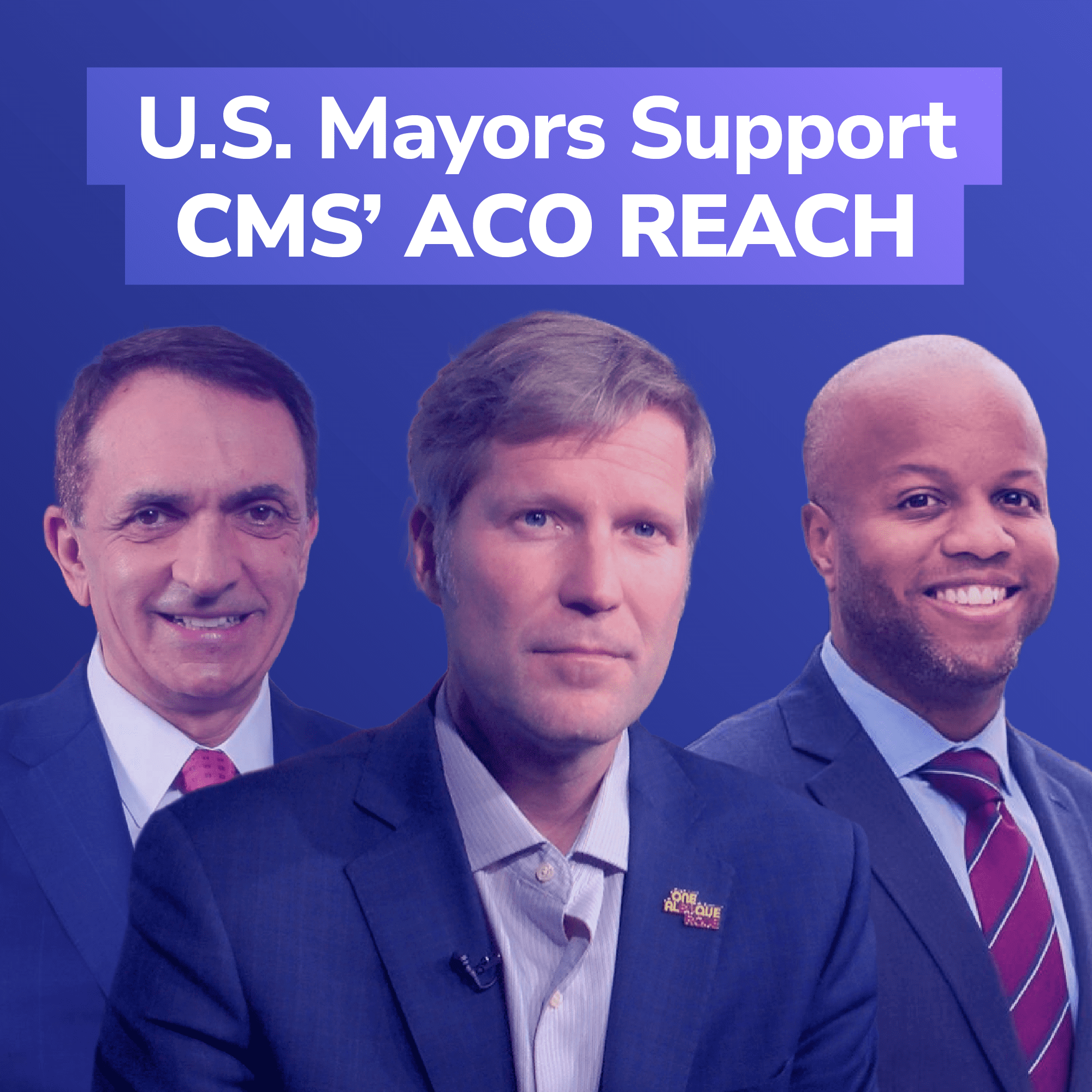The U.S. Conference of Mayors voted on Monday in support of the Centers for Medicare and Medicaid Services’ ACO REACH Model, recognizing the model’s potential to increase primary care availability in underserved communities and bridge historic health inequities.
The Accountable Care Organization Realizing Equity, Access, and Community Health (ACO REACH) Model was designed specifically to advance health equity to bring the benefits of accountable care to underserved communities; promote provider leadership and governance; and protect beneficiaries and the model with participant vetting, monitoring, and transparency.
The U.S. Conference of Mayors resolution in support of the ACO REACH Model was sponsored by mayors Tim Keller (Albuquerque, NM), Dean J. Trantalis (Fort Lauderdale, FL), and Corey Woods (Tempe, AZ), and was widely supported by mayors across the country.
U.S. Conference of Mayors — Resolution 7
In Support of the CMMI ACO REACH Model Delivering Primary Care to Seniors On Medicare in Underserved Communities
- WHEREAS, bridging and healing historic health inequities throughout the United States is a priority of Mayors across the country; and
- WHEREAS, the Biden administration has also put health equity at the center of its work and has set a goal of having every Medicare beneficiary in an accountable care relationship by 2030; and
- WHEREAS, the Centers for Medicare and Medicaid Innovation (CMMI) were created by the Affordable Care Act to develop new ways of delivering care to Americans; and
- WHEREAS, the Accountable Care Organization Realizing Equity, Access, and Community Health (ACO REACH) Model administered by CMMI is set to serve 1.8 million Medicare beneficiaries in 2022 building on its 2021 population across more than 200 American cities with populations over 30,000; and
- WHEREAS, ACO REACH will enable CMS to test an ACO model driving towards three critical goals supported by Mayors including advancing health equity to bring the benefits of accountable care to underserved communities, promoting provider leadership and governance, and protecting beneficiaries and the model with more participant vetting, monitoring and greater transparency; and
- WHEREAS, mayors are on the front lines of the continuing crisis health disparities inflict on their cities and ACO REACH is one way primary care providers are being incentivized to offer care in neighborhoods that long have been without it; and
- NOW, THEREFORE, BE IT RESOLVED, that The United States Conference of Mayors urges Congress and the Biden administration to continue to support the CMMI ACO REACH model in its quest to test, for the first time, if value-based structures can work in the public, traditional Medicare program; and
BE IT FURTHER RESOLVED, that The United States Conference of Mayors supports this important test of incentivizing high quality, valued-based Medicare primary care in order to accelerate its establishment in underserved neighborhoods across America where, many times, such care was not previously available.
At Pearl Health, we believe that the ACO REACH model is unique in its capacity to both advance health equity and empower primary care physicians to deliver high-quality care to patients while effectively managing the total cost of care.
At scale, the ACO REACH Model has the potential to increase investment in preventative care and holistic wellness, reduce wasteful healthcare spending and climbing costs, and increase revenue for primary care practices across the country.
We support the U.S. Conference of Mayors in their adoption of this resolution and commend them for their commitment to advancing health equity, more efficient healthcare spending, and greater investment in primary care.


